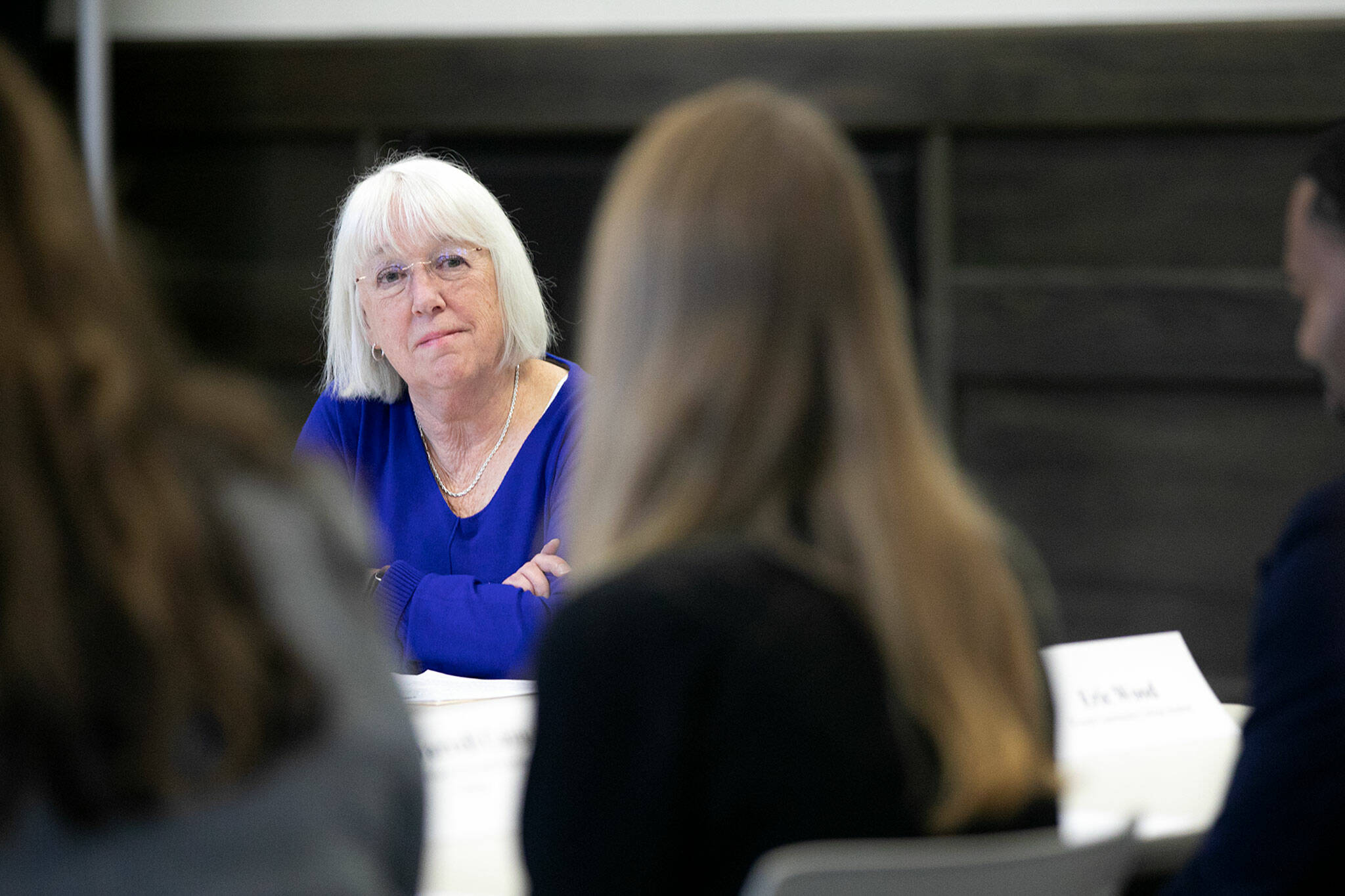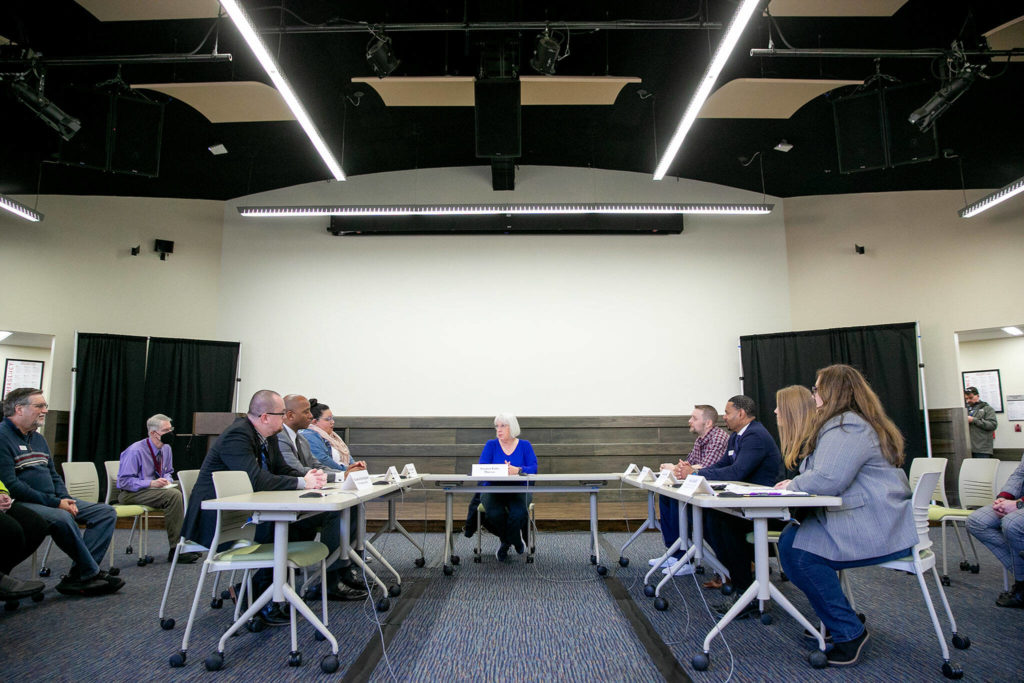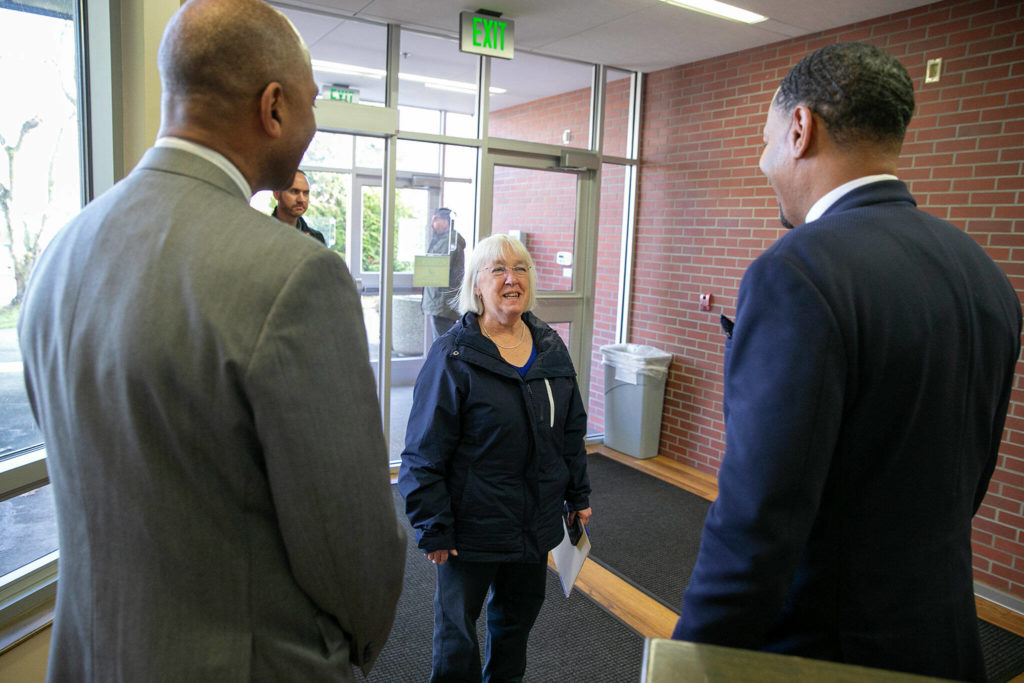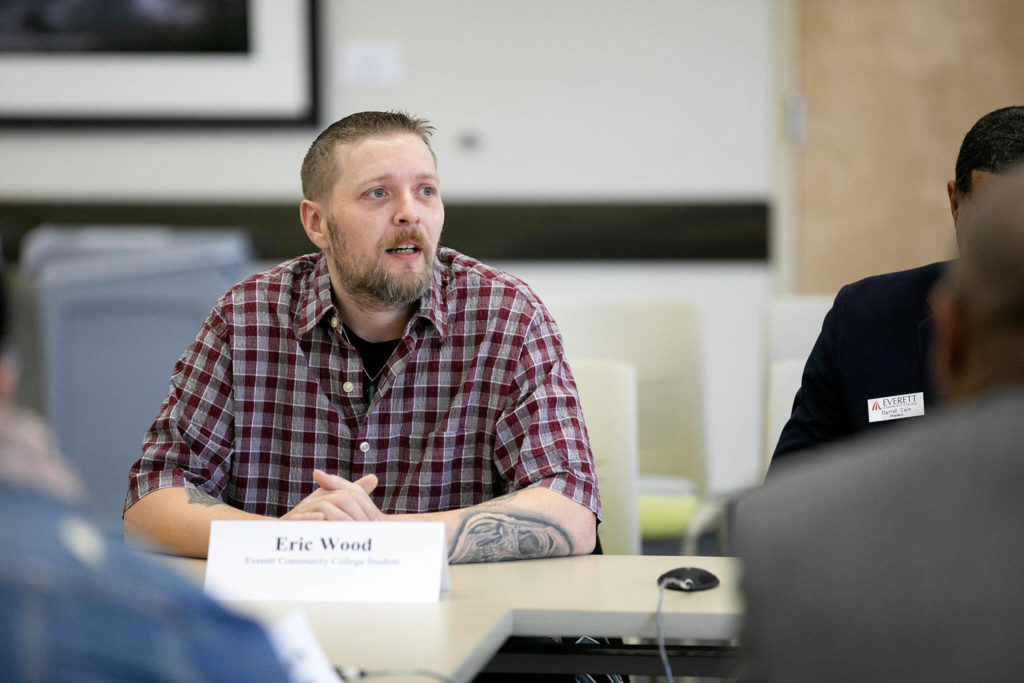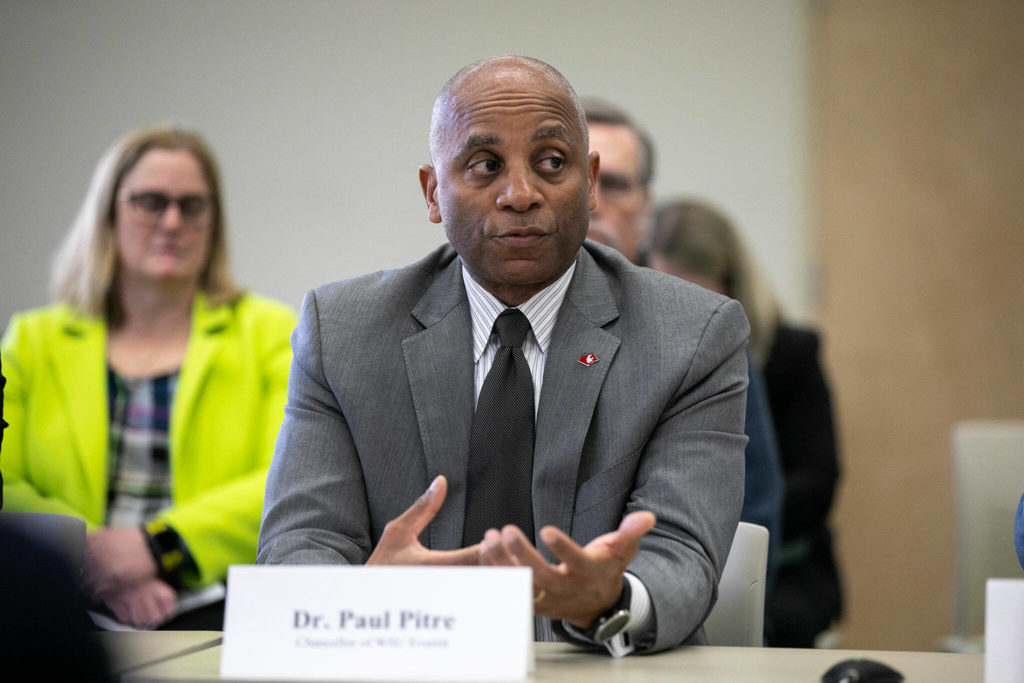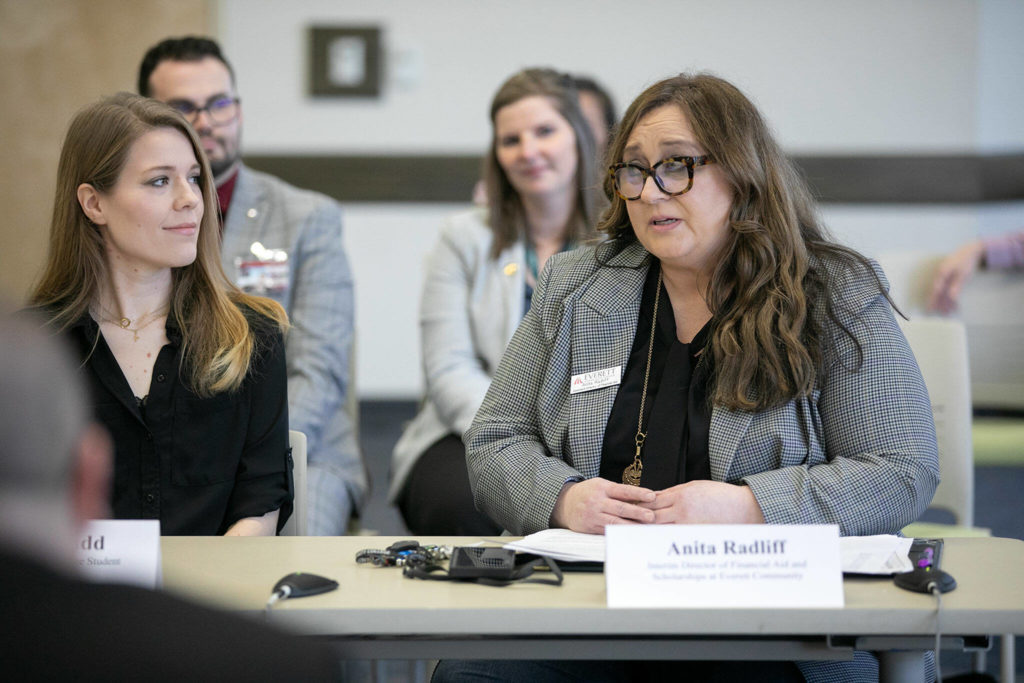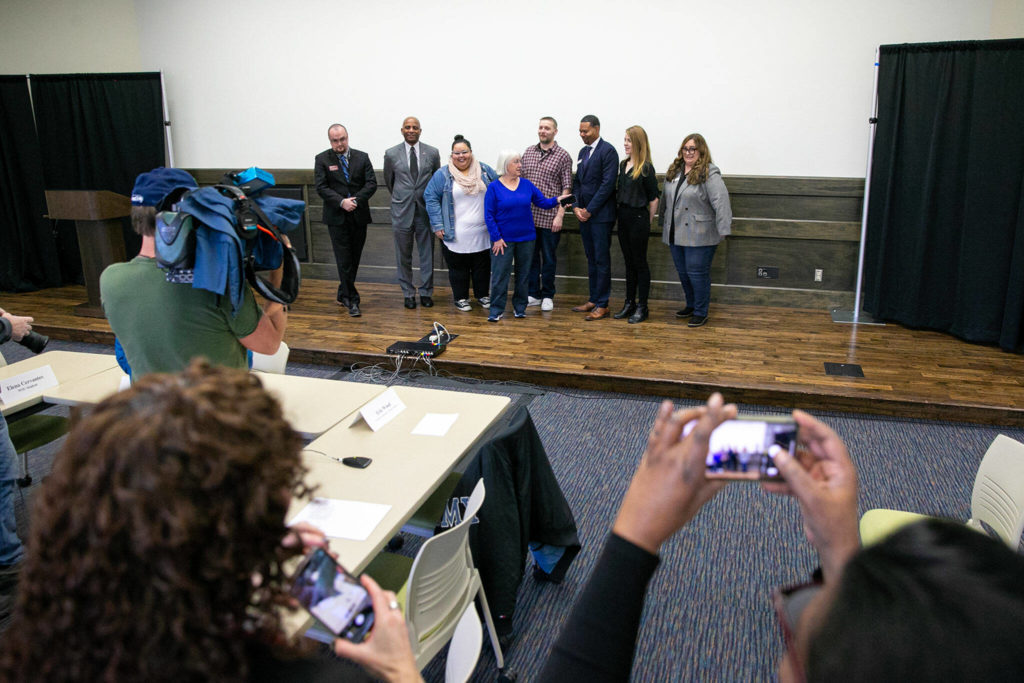EVERETT — In a few months, Eric Wood said he expects to earn his degree at Everett Community College.
It’s not a journey he ever envisioned a few years back when he struggled with alcoholism and lived on the streets, he told U.S. Sen. Patty Murray in an education roundtable Thursday at the community college.
Things got real, he said, upon learning he would become a father. Now, three years sober, he said he’s looking to build a career with skills honed in welding and fabrication classes.
“I didn’t see a way out for a long time,” he said. “I went back to school earning my GED, which was a huge accomplishment because I never thought I would ever have a GED.”
“Someone told me to apply for financial aid so I could continue my education, and now thanks to financial aid including the Pell grant, I am able to pursue a career and provide for my family,” Wood said. “By going back to school, I’m able to set an example for my kids and everyone else that if you put your mind to something you can do it.”
Jessica Mudd, an Everett Community College student, and Elena Cervantes, a Washington State University Everett senior, then shared their respective journeys into higher education, stressing the critical importance financial assistance has played in their ability to stay in college.
Roughly 40 percent of students attending Everett Community College and WSU Everett receive Pell Grants. They usually are awarded only to undergraduate students who display exceptional financial need and have not earned a bachelor’s, graduate or professional degree, according to the U.S. Department of Education.
Cervantes said she started, stopped for years, and then restarted.
“Access to a secondary education wouldn’t have been possible without Pell grant funding and non-loan financial assistance,” she said, adding “a financially accessible education will positively impact a student, but the ripple effect it can create in a community will last generations.”
Murray listened intently as each spoke, at times nodding in agreement as each urged greater federal assistance for others like themselves.
“It was so inspiring to hear your personal stories,” she said, noting she’ll share them with Senate colleagues as she pushes for expanded federal investment in Pell Grants and other financial aid programs.
The former preschool teacher has been pretty successful on this front in her Senate career.
She spearheaded efforts to fund a $500 increase in the Pell Grant in the current federal budget. That follows a $400 increase in the prior funding package. Today, the maximum Pell Grant is $6,895. It will rise to $7,395 on July 1.
She has also co-sponsored legislation to double the Pell Grant award, index it to inflation, and make other critical changes to expand the award for working students and families.
Now, as chair of the Senate Appropriations Committee, Murray is well-positioned to bolster the flow of federal dollars into higher education where enrollment declined in the pandemic, and is still falling for many two- and four-year universities.
“COVID has had a deep impact on people,” she said, and Congress needs to make investments to “make it affordable for people to go back to school.”
Educators in elementary and secondary school need lawmakers’ focus too, she said, as they cope with learning loss suffered by many students in the pandemic.
“That is going to be something on our plate for a long time,” she said.
Jerry Cornfield: 360-352-8623;
Talk to us
> Give us your news tips.
> Send us a letter to the editor.
> More Herald contact information.
